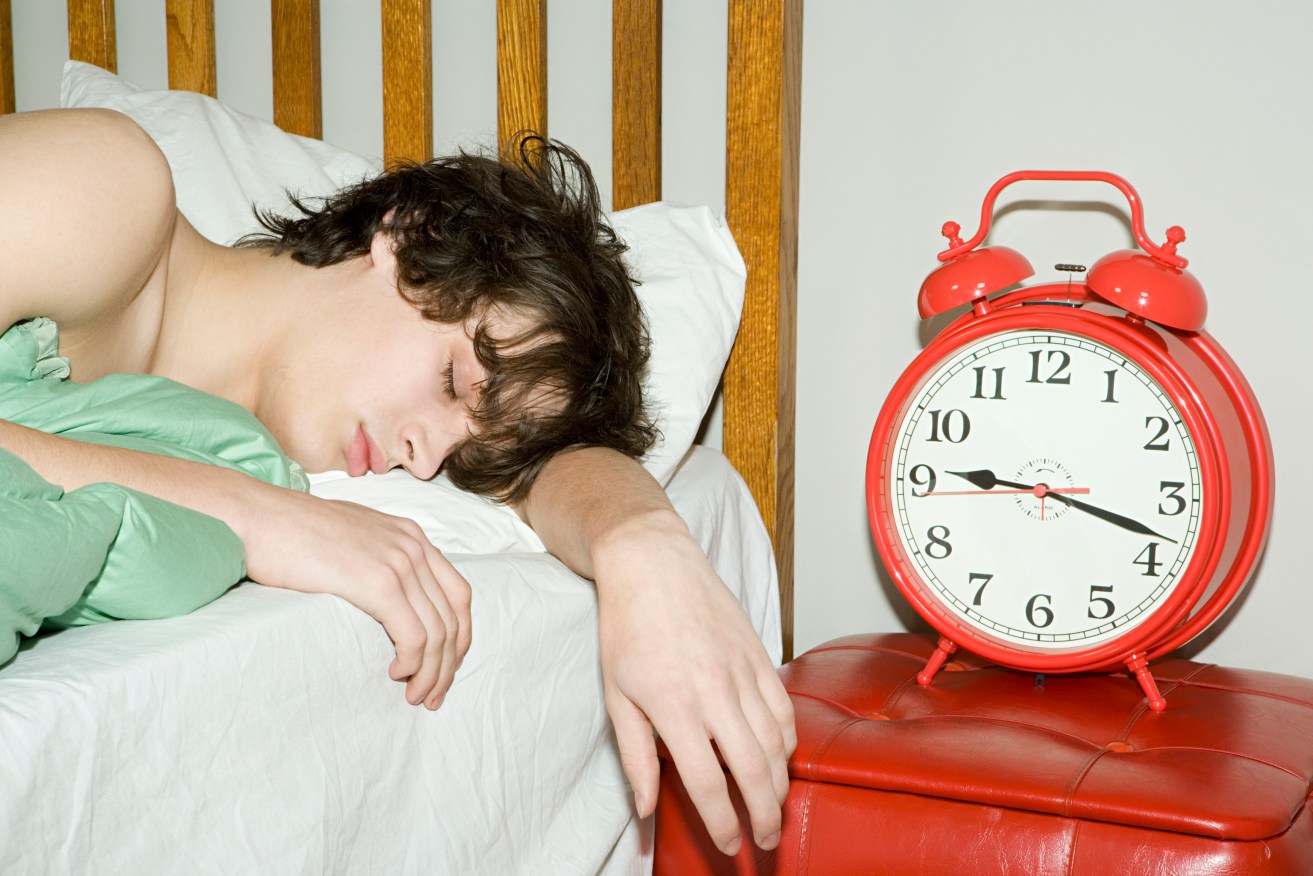Why teens stay up late: How to help them get the sleep they need


Shouldn't you be in school, young man? Photo: Getty
Biology plays some nasty tricks on teenagers, including a setting of their circadian clocks that leads them to staying up later and later – while at the same time requiring them to get eight to 10 hours of sleep a night.
Most teens get less than eight hours.
So when you’re trying to coax and nag that 15-year-old out of bed – and become frustrated with their recalcitrance – you’re dealing with a hard-wired problem, as well as your teen child’s determination to stay up late and do what they want to do.
The net result for some teens, not all, is frequently running late for school, feeling sleepy during the day, feeling moody or grumpy, and perhaps not doing as well academically as they might.
Other problems with lack of teen sleep
In January Brigham Young University published a study that found teenagers suffering with short sleep “consumed more foods that were likely to spike blood sugar fast – things like foods high in carbs and added sugar, or sugary drinks, compared to when they were in healthy sleep”.
The researchers reckoned that these teens were consuming, on average, an extra two kilograms of sugar per year.
A 2013 study found that “acute illnesses, such as colds, flu and gastroenteritis were more common among healthy adolescents who got less sleep at night”.
What to do?
Some teens will get to the point that they get sick of the walking-coma life and will agree to see a sleep specialist, if the household can afford one.
One suggested fix is to accept the biology and allow teens to start the school day later.
This has been talked about for years but hasn’t widely been enacted. See here for one experiment that had some significant gains.
A 2019 study from Penn State found that when teenagers “got more physical activity than they usually did, they got to sleep earlier, slept longer and slept better that night”.
Specifically, the researchers found that for every extra hour of moderate-to-vigorous physical activity, the teens fell asleep 18 minutes earlier, slept 10 minutes longer and had about 1 per cent greater sleep maintenance efficiency that night.
On that basis, exercise is helpful, and will have multiple benefits, but for significant gains, your teenager would have to be running the treadmill for a few hours a day. That isn’t going to happen.
On the other hand, the study participants were followed for only a week. The accumulative benefits over time weren’t investigated.
A new study
Researchers from Rush University Medical Centre have tested a two-week intervention that “targets the circadian system with different behavioural measures and tries to help the teens figure out a better night-time routine”.
To combat teen sleep deprivation, the researchers used bright light therapy on two weekend mornings for a total of 2.5 hours.
The bright light cues the internal clock to wake up a little earlier. This shift should make it easier for the teen to fall asleep at an appropriate time.
The researchers then “helped counteract sleep deprivation by providing time management tools and addressing barriers to an earlier bedtime, like limiting certain after-school activities”.
With this combination, the researchers were able to shift the teens’ bedtime by an hour and a half earlier, and their total sleep time increased by about an hour.
Stephanie J. Crowley, associate professor of psychiatry and behavioural sciences and the director of the Paediatric Chronobiology and Sleep Research Program at Rush, said: “The interesting thing is that teens with late circadian clocks shifted by up to two hours earlier.
“And the teens who had an earlier circadian clock didn’t need to be shifted any earlier. They just needed the behavioural support of trying to manage their time in the evening and increase their sleep duration.”
The researchers found that the teens in the intervention group were less tired, less irritable and less worried, and they exhibited better concentration. The students’ morning alertness improved as well.
How would these interventions play out in the real world? They probably won’t unless your teenager sees the problem, and wants the benefit.








